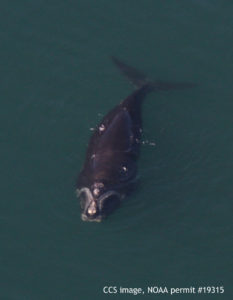 YARMOUTH – The Yarmouth Port-based International Fund for Animal Welfare is expressing disappointment for the Maine Lobstermen’s Association decision to withdraw its support for the Take Reduction Team Agreement concerning right whales.
YARMOUTH – The Yarmouth Port-based International Fund for Animal Welfare is expressing disappointment for the Maine Lobstermen’s Association decision to withdraw its support for the Take Reduction Team Agreement concerning right whales.
The association withdrew support last week due to what it calls “serious flaws in the data” presented during the agreement process.
IFAW Marine Campaigner CT Harry said the association’s withdrawal shouldn’t serve a blow to the collaborative effort to save the whale species while ensuring long-term lobster fishing success.
“Solutions can be identified to achieve both goals and IFAW remains committed to working with the lobster industry and stakeholders across all sectors to find them,” Harry said.
The April 2019 Take Reduction Team agreement calls for Maine lobstermen to reduce its risk to right whales by 60 percent.
“Following the TRT meeting, MLA undertook a careful review of data available from National Marine Fisheries Service, due to unresolved concerns with the timeliness and accuracy of information provided to TRT members,” said Patrice McCarron, MLA executive director.
“NMFS own data show that that the lobster fishery is the least significant cause of right whale serious injury or mortality, while ship strikes, gillnets and the Canadian snow crab fishery pose much greater risks.”
The MLA’s analysis revealed the Canadian snow crab fishery accounts for 31% of right whale serious injury and mortality, gillnet and netting gear represent 13%, unknown trap/pot gear represents 4% and U.S. trap/pot gear represents 4%. U.S. and Canadian vessel strikes account for the remaining 48%.
“The MLA cannot responsibly recommend its members undertake changes in fishing practices when whales may continue to become entangled in fishing gear, such as gillnets, which are not included in the current rulemaking,” McCarron said.
The MLA review of the data also found that current whale protection measures have been effective.
Changes to the right whale plan in 2009 and 2014 resulted in a strong downward trend in the incidence of entanglement cases involving U.S. lobster gear, from seven cases prior to 2010 to only one case since then.
The one case was a non-serious injury in Massachusetts lobster gear.
The data show only one confirmed right whale entanglement in Maine lobster gear, in 2002, with no known serious injuries or mortalities attributable to that gear.
NMFS’ data also show that ropes removed from right whales in recent years are not representative of ropes used in Maine’s lobster fishery.
The critically endangered North Atlantic right whale population is only around 400.























